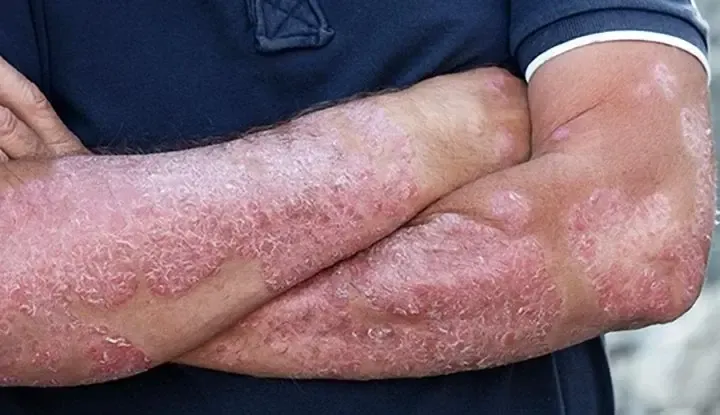Combining Immunotherapy May Offer Hope for Advanced Melanoma Patients

Synopsis
Key Takeaways
- Combination immunotherapy shows promise in treating advanced melanoma.
- Over 50% of patients achieved long-term disease control.
- Survival rates increased notably with upfront treatment.
- Study emphasizes the importance of early intervention.
- Recommended as standard care for patients with brain metastasis.
New Delhi, Feb 18 (NationPress) A combination immunotherapy could potentially cure a significant number of individuals suffering from melanoma—a lethal form of skin cancer—that has metastasized to the brain, according to the findings of a clinical trial with a seven-year follow-up released on Tuesday.
The study, published in the journal Lancet Oncology, indicated that over 50 percent of patients receiving combination immunotherapy as their initial treatment achieved long-lasting disease control. Currently, individuals with brain metastases—comprising 30-40 percent of Stage 4 melanoma patients—have an average survival time of merely 16 weeks.
Professor Georgina Long AO, Medical Director of Melanoma Institute Australia, noted that the combination therapy resulted in a 48 percent overall survival rate, which improved to 51 percent for those who received the treatment as first-line therapy.
“This demonstrates that we have attained long-term disease control in this cohort of advanced melanoma patients,” stated Long AO, who is also the principal author of the research.
“We now have confidence that these patients are cured—a term that is not used lightly in oncology. This combination immunotherapy should be recognized as the standard treatment for melanoma patients with brain metastasis,” she added.
The randomized, phase 2 trial, which took place from 2014 to 2017, enrolled 79 patients. Among them, 36 received combination checkpoint inhibitor immunotherapy (anti-PD-1 plus anti-CTLA-4), while 43 were treated with a single-agent immunotherapy (nivolumab).
The results from the seven-year follow-up illustrated a 42 percent progression-free survival rate for the ipilimumab plus nivolumab group compared to just 15 percent for the nivolumab-only group. The overall survival rates were 48 percent and 26 percent, respectively.
For patients who were treated as first-line therapy, the seven-year progression-free survival rate was 47 percent with the combination therapy, contrasted with 14 percent for the single agent, and overall survival was 51 percent versus 29 percent respectively.









